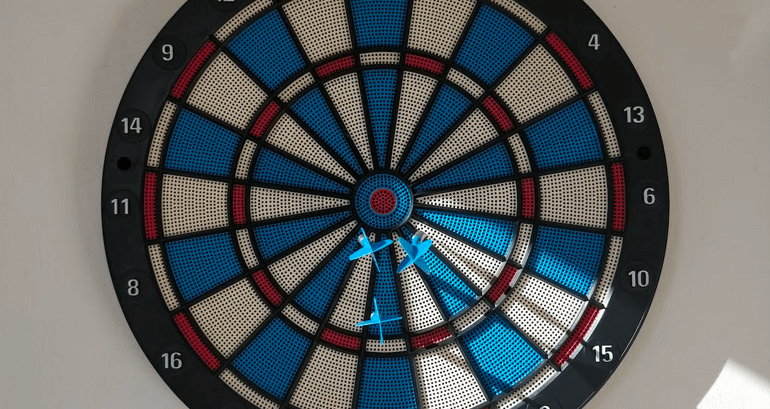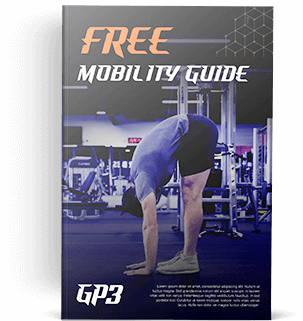Key Points:
1. Going deep on why our goals matter to us can increase the likelihood we achieve them. An exercise called “The 5 Whys” can help us do this.
2. We can control the completion of daily and weekly habits FAR more than whether or not we achieve our goals. But doing so also increases the likelihood that we will.
3. As a bonus, taking both of the above steps can help us uncover hidden identities and thought patterns that may be robbing us of happiness.
Estimated reading time: 5-10 minutes
It’s resolution season again! Because goals like “get in shape,” “lose weight,” and their many cousins are so common, I’m going to devote multiple blog posts over the next few weeks to an exploration of how you can best prepare yourself for success. My only worry is that I may be too late! By the time you read this, surveys show that a mere week into the year, nearly 25% of people have already given up on the resolutions. Why is that? Well, if you’ve read the email’s title, today’s topic won’t be a surprise. We’re going to examine setting meaningful goals and why we want what we want.
Why do we start working out?
Broadly, deciding to “get in better shape” typically has one of three motivations:
- Desiring more attention from potential romantic partners
- Wanting to perform better at sports
- Aiming to Improve one’s overall health and/or potential for longevity
The first two tend to motivate those who start working out at younger ages, while the final category may become a more powerful motivator as we age. With this in mind, we must first ask ourselves how our goals can be divided between those three buckets.
“Help me get a six-pack and I won’t care if I can’t squat an empty bar!”
A client of mine said this to me a few years ago, mostly in jest. He’s also probably annoyed that I’ve mentioned it in this blog multiple times, even without naming him. So I’ll also say that in the past 3 years, he’s been a model of workout consistency and has made massive strides in improving his strength, body fat percentage, and physical abilities. I’m super proud of him!
Now, even though he wasn’t completely serious with the above comment, I like to discuss this example because it’s not too far off from a prevalent mindset. Lest you think I’m about to start moralizing, it’s totally fine if looking better is all you want! Too often, people demonize training with aesthetic benefit as one’s main motivation…2015 me included. Looking back, I probably espoused this viewpoint because I was only a few years removed from being a college athlete and still walked around at 10% body fat for much of the year. So, I was pretty comfortable with the way I looked. I was more interested in pushing my physical capabilities.
This led me to silently judge those who were motivated mostly by improving their looks, and I retroactively apologize. Now, I still believe that training for performance will inevitably lead to aesthetic benefits, especially if paired with proper nutrition and recovery, but I digress. The point remains that if what motivates you is to look better, embrace that! It’s freeing to not have to hide what you want.
Wait, this will take HOW long?!
Problematically for our motivation, all of those buckets tend to yield results on longer timescales. The initial effort outpaces the observed benefit. For example, let’s say you’re a young guy who wants bigger arms and a bigger chest because that’s what you think the girls you like are into. Unless you’ve been blessed with incredible genetics, it’s going to take multiple months of hard work before there are any noticeable changes.
Now, when you’re young and have limited responsibilities, that may not be an issue. However, let’s say longevity is your concern. Perhaps you’re in your 50’s when this starts to come to the forefront of your mind. If you have extensive career and family responsibilities competing with your goal, you’re in an uphill battle. “Longevity” is intangible, and quality of life improvements like reduced joint pain or lower blood pressure may similarly take weeks of hard work to emerge.
When we don’t acknowledge this, giving up when the going gets tough isn’t a failure of character, it’s rational. But, by acknowledging this and really going deep on our motivation, we can start to stack the deck in our favor.
We can take this a step further by focusing less on the goal and more on the daily habits that help us achieve them. For example, “I want to gain 15 pounds of muscle this year,” is far less in your control than, “I’m going to work out three times per week this year, every single week.” Identifying the controllable daily and weekly habits can help increase our chances of reaching any goal. In fact, some experts recommend doing this entirely in place of setting goals.
Make sure to deeply explore “Why?”
This may be harder than it initially seems. The first answer that comes to mind might appear beyond obvious. “Why wouldn’t I want to look better? That’s stupid. Who wouldn’t want that? It’s just natural.” Thought patterns like this led our friends at Precision Nutrition to encourage all of their clients to complete an exercise called “The 5 Whys.” It helps us arrive at the root desire for those things we say we want. Let’s look at a hypothetical example here:
Goal: I want to lose the 20 pounds I’ve gained in the past few years.
Why? (#1): Why do you want to lose 20 pounds?
Well, I don’t like the way I look in recent photos.
Why (#2) don’t you like the way you look in photos?
I don’t want people to think I’ve “let myself go.”
Why (#3) don’t you want people to think that?
I don’t want people to think I can’t take care of myself.
Why (#4) is that?
Well, maybe I don’t want to feel like I can’t take care of myself.
Why not? (#5)
Maybe I’m worried about losing autonomy as I age. I don’t like the thought of not being able to take care of myself and being a burden to others, or being put into a nursing home.
Now we’ve gotten somewhere! This exercise gives us a more compelling reason to pursue our goals on the days we “just don’t feel like it.” In addition to remembering the always something mindset, telling ourselves that we’re doing this to retain our ability to take care of ourselves in old age is a much stronger motivator than simply wanting to lose 20 pounds.
Competing goals
Before wrapping up, we need to take a quick detour to discuss prioritization. When it comes to goals, we can’t have it all, at least not at the same time. To clarify, sometimes goals can interfere with each other. Or at least, our methods for achieving them can. For example, let’s say we want to lose body fat in order to have higher levels of energy, but we plan lose body fat quickly by maintaining a large daily caloric deficit. In such a case, we will likely experience lower energy levels until our calorie intake stabilizes. That’s simply a tradeoff we need to be willing to make.
In another case, let’s look at my friend, Will, whose experiences running a marathon I wrote about here. Prior to his marathon training program, he strength trained frequently, usually four or more times per week. While doing so, one of his goals was increasing his max deadlift strength, for which his personal best was 440 lbs. prior to the marathon. For those unfamiliar, 455 lbs. Is considered a bit of a deadlifting milestone since it’s “four and a half plates per side,” and he was quite close to achieving it.
However, he had to set this goal aside to prioritize running a sub 3.5-hour marathon. From a performance standpoint, these goals are mutually exclusive. In order not to bore you with the nerdy details, suffice it to say that both are neurologically taxing in different ways. The way you train for an intense endurance event will automatically interfere with optimal recovery for a maximal strength goal. And vice versa. In short, you can’t have both. So, Will decided that the marathon was more important and accepted that he’d see a temporary decrease in his deadlift strength while training for it.
So, take a look at your own goals to see whether any directly conflict with each other. If they do but you’re not willing to accept a tradeoff when it comes to one or both of them, you may need to reassess which goals will receive your time, energy, and attention.
Of course we need to mention identity…
The “5 Whys” exercise mentioned above gives us an excellent opportunity to examine unconscious identities. In the example from a couple of sections ago, perhaps “one who isn’t a burden to others” is sometimes a productive identity, and sometimes not. Either way, it’s typically better to be aware rather than unaware that we hold this (or any) particular view of ourselves. Then, we can then choose how much or how little to engage with and reinforce these views. The freedom that results from doing so is a recipe for greater life satisfaction. And I think that’s a resolution we can all get behind!
Before you go, I’d love to hear from you! What are your goals for the coming year? Do you think any of them compete with each other? Which daily or weekly habits will help you achieve them? Reply to this email and let me know!

